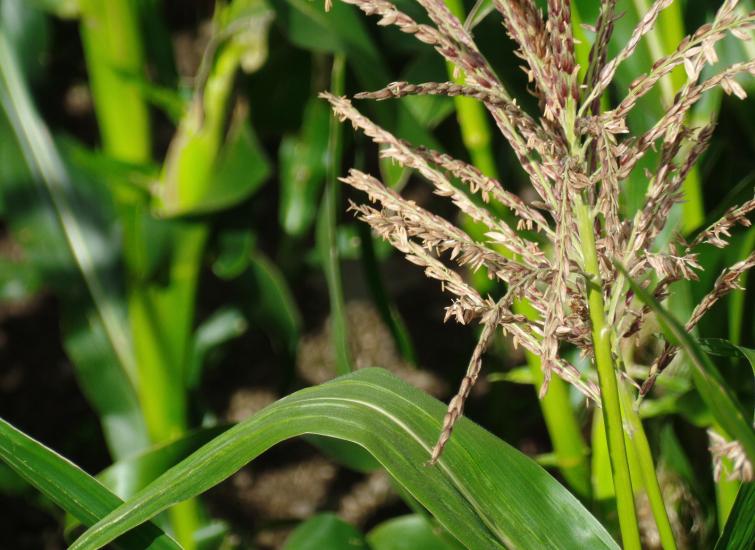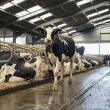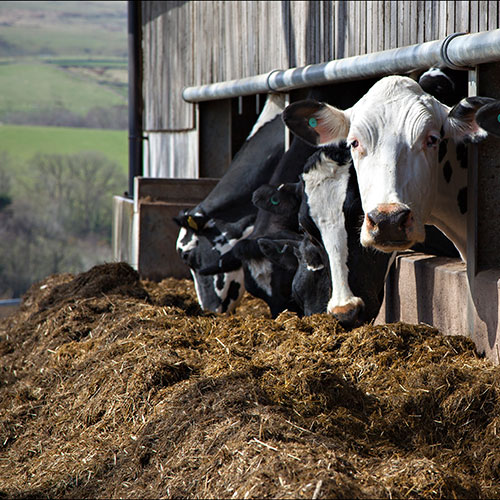Adding value to your Maize Silage
With the maize harvest upon us, we look at the value of maize silage additives, not just to prevent spoilage but to improve the health of your cows.

Maize silage provides an excellent nutritional profile, so it’s important that we maintain its quality. Silage quality does not only affect feed value it also has an impact on the health and welfare of your cows.
Maize silage that hasn’t been treated with additive can be susceptible to spoilage which can result in:-
- Low nutritional values
- Feed value losses
- Yeast and mould development
- Heating
- Clostridium development
Bon Silage FIT M
Our team of Ruminant Nutritionists visited Germany on a research farm with the technical teamat Shaumann who produce the BonSilage range of silage additives. The main focus during the trip was on their BonSilage FIT product range, both for maize and grass silage. It works by shifting the fermentation acid patterns to produce more acetic acid and propylene glycol which increases aerobic stability as shown in Figure 1.

Benefits of BonSilage FIT M
By using a carefully formulated mix of both Homo- and Heterofermentative lactic acid bacteria it provides excellent aerobic stability to stop the clamp face from heating. This is due to increased acetic acid being produced which will reduce nutrient losses effectively by killing yeasts and moulds.
The unique benefit of this additive is its ability to produce propylene glycol during the fermentation process alongside the acetic acid. The use of the additive has been shown to provide 20-45g of propylene glycol per kg of DM. For example, if a cow had 22kg DMI, with 60% of the diet grass silage treated with FIT G this would provide 400g of propylene glycol.
Based on the example above of 400g of propylene glycol fed, it would cost 9.6p/cow/day to feed BonSilage FIT M based on the cost per treated tonne compared to a cost of 72p/cow/day to feed a liquid propylene glycol product.
Benefits of Propylene Glycol
Propylene glycol is beneficial to cows in early lactation to reduce the effects of negative energy balance, due to its ability to reduce body fat mobilisation. By being absorbed as propionate in the rumen it allows for increased glucose production which in turn stimulates insulin secretion and, reduces the mobilisation of fatty acids from the cow’s body reserves. By helping prevent ketosis and increase insulin levels it improves fertility, with cows cycling sooner after calving and stronger heats being observed.
Being able to produce propylene glycol during the silage fermentation process is an innovative way to help combat one of the dairy industries most prevalent metabolic disorders.
For further information on maize silage additives, bespoke to your farm, please contact the office on 015242 63139.
〈 BACK














